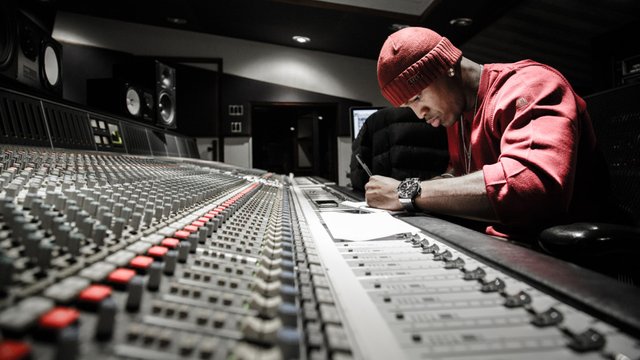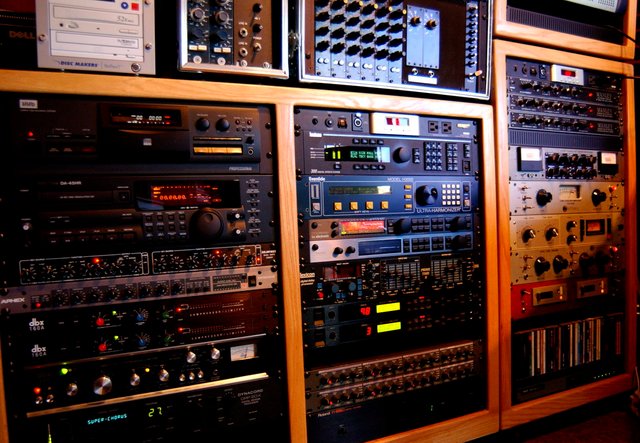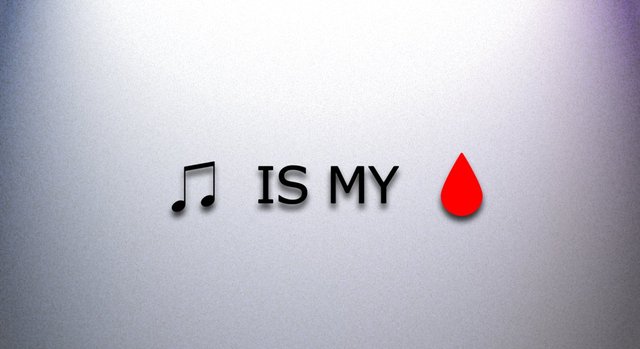From the past, to the present, how things have changed in the music producer scene

image gotten fromhere
a nice photo of Ne-yo,the magic of the early 2000's in the studio
How do I say this, music production in the old days were good. Those times around the 90’s, 80’s etc. when music production was done in analog consoles and with a band. When concepts such as ITB(In-The-Box) mixing style, and things such as software DAWS, plugins etc. were basically non-existent. Back then, there were hardware equivalents to what we see being emulated in computers today.
Back then, things such as compressors, equalizers, delays, plate reverbs, and so many other audio effects that I have covered/will cover here were all available in hardware form.
In this age where every tom, dick and harry can get a copy of Pro tools from a torrent site and start making ‘’music’’, the goals and objectives of the previous century seems to be lost in the whole franca of ‘’trap’’ hardcore, dubstep and all these noisy, aggressive sounds that we have today.
In the days of the recording engineer
http://media.gettyimages.com/photos/english-record-producer-martin-hannett-in-a-recording-studio-circa-picture-id573625785
image credit
apparently Martin Hannett loved the console so much
Back in the days, there wasn’t really much like a ‘’music producer’’ a person who does jack-of-all-trades style of music engineering. I wasn’t on the console in the 80’s or 90’s, but I did grow up with those who knew
their way around all these stuffs.
From what I can gather, sounds from that era seems to be ever green, as can be seen from records by Michael Jackson, Elton John, Fela kuti, etc.
Back then, the term was the recording engineer, the person who would sit behind the console, listen to the band practice for hours until their sound was perfect, arm the record button, and track all the inputs.
Recording in the past was a warfare. Any error in the recording process either had to be taken in good faith, or you had to repay for a new recording session(which was somewhat expensive).
Gears, Plugins and Techniques

image gotten from here
all these could break your bank account these days
I recorded a session with another producer a few days back. It started with the artist coming a few minutes late into his own session time(he booked for 5 hours), then him making more than a few errors in the recording process.
We ended up making the recording for 6 hours because the said artist just couldn’t get how to speak into a mic(a serious problem these days).
Such a recording would have been impossible in the past, considering that the only ‘’hardware’’ or gear we used was the C1 mic, the focusrite 2i2 sound-card and the laptop.
All other things such as the compression his voice was running through, the equalization applied post-recording and the reverbs&delays were all added in the box.
Below, I give some pictures of hardware gears that now have software equivalents.
Even the techniques we use for recording is different.
Back then a favorite technique was apparently called ‘’riding the vocal’’. This is still done today in live settings, but its seldom done in the modern music studio. Riding the vocal involves using the fader for the said vocal, and moving it up and down when the vocal becomes too loud or too soft.
The differences between both era’s just keep piling up.
ITB production

image credit
In the box recording is far less complex
These days, what many people do is called In The Box production. The box referred to here is the computer, and it is a technique whereby all the production, all the external instruments and every effects are all routed into a computer.
This is the technique of music production I currently do,and it is this technique of music production that has given birth to the Jack-Of-All-Trades style music producer that is abound today.
In the box is more than just a technique, it is a concept, a following, a transition. It is the main difference between tracking with an analog console and the modern ways if production.
ITB is the heart and soul of modern music, even though tracks may be routed to external effects such as hardware compressors, or saturators, the ultimate tool used for the whole production could be a small mac at the center of your table.
And so on,and so forth. . . . .

image link
its also my life, and my everything
Music production has really gone very far these past 20 - 30 years. Yes complex music such as Heavy metal, Death metal had been existing before the modern era, it is my belief that the resources at our disposal, unlimited track count, complex sampling tools, etc has lead to a rise in the variety of music that we listen too. And if anything else isn't a good thing, then hearing more diverse and interesting music surly is a reason for me to love my job as a music producer.
Wow you really know your stuff - pretty impressive level of detail here. I definitely agree with your conclusions that the integration of computers with recording technology has been a part of the proliferation of music genres, and will continue to drive this going forward. And that isn't even really taking into account how computers are changing what the definition of a "musical instrument" is! I am really happy to have found you, following you and looking forward to more of your fascinating posts on music production. Cheers - Carl